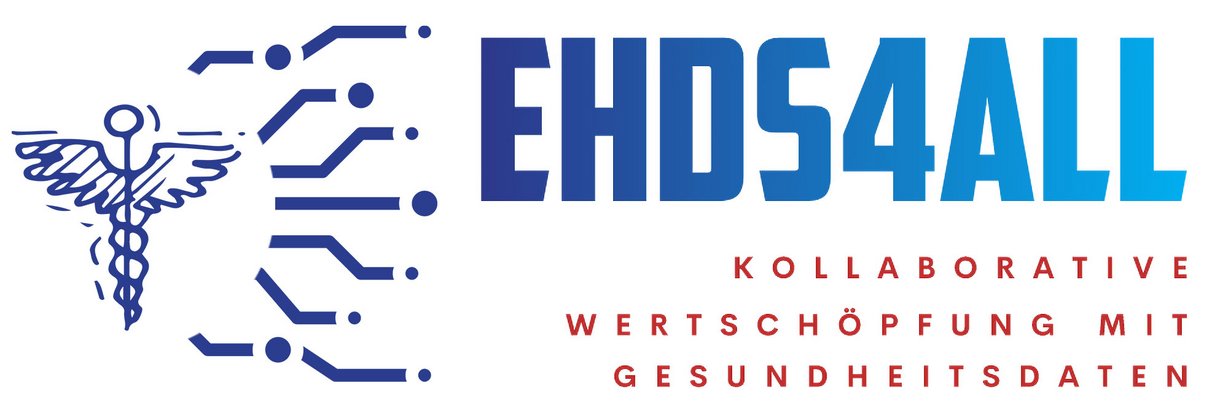Towards Health Futures
Background
We seek to understand this destabilizing character of the conjunction between “the byte” and “the gene” – digitization and biology for health futures. We do this through the lenses of digital infrastructure, digital ecosystems, digital innovation and entrepreneurship.
We engage in three main projects: (1) forming an international "Towards Health Futures" community to set a joint research agenda, (2) BioVenture Study Berlin, and (3) understanding value creation and approproation with health data with ELIXIR (further details below).
What is new about health data?
Use and re-use of shared data triggers new value creation mechanisms. Data can be used and re-used to create opportunities and generate benefits in ways that could not be foreseen when the data were created (OECD 2016). The interest in the potential of data harnessing and sharing has been reflected in recent IS conferences, where track themes include “Big Data Analytics and Business Transformation” (ECIS 2017, ECIS 2018), “Digital Ecosystems” (ECIS 2017, ECIS 2018), “Business Analytics and Data Science” (ECIS 2017), “Data Science, Decision analytics and visualization” (ICIS 2017), “Data Science and predictive analytics” (ICIS 2018) and “Bridging the internet of people, data, and things” (overall In research about platforms, infrastructures, or services that collect, store, or analyze data, the information system stays in the spotlight – not the role data itself (Jarvenpaa & Markus, 2018). The facilitation of data storage, curation and access is crucial for data to serve for multiple and possibly unexpected purposes (Tempini, 2017; Vassilakopoulou, Skorve, & Aanestad, 2018). Even a conversation about boundary resources – an artifact that enables this serendipitous purpose – tends to focus on the implemented API instead of the data that is exchanged (e.g., de Reuver, Sørensen, & Basole, 2017; Eaton, Elaluf-Calderwood, Sorensen, & Yoo, 2015; Ghazawneh & Henfridsson, 2013).
We seek to improve our understanding about the role of data and data infrastructures as a driver of digital innovation (e.g., Barrett, Davidson, Prabhu, & Vargo, 2015; Fichman, Dos Santos, & Zheng, 2014; Yoo, Henfridsson, & Lyytinen, 2010)and digital entrepreneurship (e.g., Davidson & Vaast, 2010; Kelestyn & Henfridsson, 2014; Nambisan, 2016).
Why health data and why now?
We focus on health data and data infrastructures, because of its under-representativeness in IS research while holding huge potentials for societal impact. Recent advances in biology promise new diagnostics, treatments, products, and services that change microbial, animal, plant, and ultimately human life (and death).
The collection, access, and analysis of health data is getting cheaper and faster. Merely a few decades ago, sequencing of a single human genome took nearly 20 years and cost 3 billion dollars. Today, whole genome sequencing costs less than 1000$ and takes days instead of years. Thus, genome data infrastructures are growing exponentially (Birney, Vamathevan, & Goodhand, 2017). At the same time, predictive models developed from association studies require access to large-scale genomic databases. Technological advances in parallel or in-memory processing as well as machine learning hold the potential to largely reduce entry barriers to analyze this data by new ventures.
In effect, we not only see ventures in B2B that offer specialized diagnostics or patient-centered drugs, but also B2C companies with ancestry or health reports. Through the lenses of digital innovation and digital entrepreneurship, we might shed new light on how data and related infrastructures are created, processed, stored, and commercialized.

Enabling SMEs and start-ups create and capture value in European Health Data Spaces.
EHDS4all: Collaborative Value Creation with Health Data
EHDS4ALL is a project funded by the Federal Ministry of Education and Research and has a project volume of overall 3m EUR (2.5m funding). Together with more than ten partners, we develop an educational service that enables SMEs to establish business models, produces and services in the European Health Data Spaces (EHDS). methodically supported and based on public data securely and independently.
European Health Data Spaces provide a uniform European regulation for the secondary use of health data by 2025. The introduction of the EHDS will result in new rules in the form of regulations and laws for data access, data availability, data use, data protection, standards and networking in the healthcare sector.
The EHDS4ALL project develops a platform-based digital toolkit and a further education program that supports SMEs and start-ups in navigating these new regulatory, technologica, and organizational environments, and form a new innovation ecosystem.
BMBF funding measure
Entwicklung neuer digitaler Leistungen für datenorientierte Wertschöpfung (DigiLeistDAT)
Project duration
01.03.2024 – 28.02.2027
Link to project website
https://ehds4all.de/
Project Partners
Universität Duisburg-Essen, Prof. Dr. Rothe
Freie Universität Berlin, Prof. Dr. Gersch
Universität zu Köln, Prof. Dr. Rosenkranz
Health Data Technologies (Honic)
SciTech GmbH (paged)
Technologie- und Methodenplattform für die vernetzte medizinische Forschung e.V. (TMF)
inav – privates Institut für angewandte Versorgungsforschung GmbH (inav)
inhive Group (Germany) GmbH & Co. KG
GWQ ServicePlus AG (GWQ)
TamedAI GmbH
Associated Partners
Famedly GmbH
Biotx.ai GmbH
Vitagroup AG
AstraZeneca
BIO Deutschland e.V.
Funded by

Past project
European Bio Data Landscape
Together with the open bio data infrastructure provider ELIXIR, we explore the impact of open data and open workflows on new ventures in European entrepreneurial ecosystems.
We seek to understand practices of creating and appropriating value from bioinformatics data in general, and genomics data in particular.
Thus, we explore the role of open data on value creation, value delivery, and value capture (i.e., the business model) of bio data ventures across innovation ecosystems in Europe. For this purpose, we interview and survey numerous founders and senior managers across Europe. In addition, we engage in computational analysis of archival and of usage data.
The project is funded by.

Current Project
Towards Health Futures (THF) Workshop Series
The Towards Health Futures community is a joint endeavor with colleagues Sirkka Jarvenpaa (University of Texas at Austin) and Michael Barret (University of Cambridge). Together, we engage with international scholars in information systems, management, and the life and natural sciences to set a joint research agenda on innovation, infrastructures, and entrepreneurship on bio data. We hold an annual conference.
- 2019:
- Berlin (Germany)
- at International Conference on Information Systems, Munich (Germany)
- 2020
- at International Conference on Information Systems, Austin, Texas (USA)
- 2022:
- at Annual Meeting Academy of Management, Seattle (USA)
- at International Conference on Information Systems, Copenhagen (Denmark)
Past project
Bio- & HealthTech Ecosystem Berlin
Under the lead of professor Hannes Rothe, the "BioVenture Study Berlin" examines venture dynamics in the field of bio and health technology in the capital region with the aim to uncover the underlying reasons for its stagnation at relatively low levels.The aim of the study is also to develop recommendations for the transfer of knowledge and technology at Berlin universities and research institutions in the field of biotechnology. On the basis of multiple rounds of analysis that involve mixed methods, relevant actors of the capital region receive recommendations for action and, as a result, new possibilities for better exploiting innovation potentials in the bioTech and healthTech sector through start-ups. The project involves partners such as Berlin Partner, Bio Deutschland e.V., Campus Berlin-Buch, the Berlin-Brandenburg Economic Development Corporation and corporate partners
It was funded by the Berlin Senate Department for Economics, Energy and Companies as part of the Industrial City Master Plan 2018-2021.
![]()

Research Partners
Prof. Sirkka Jarvenpaa, McCombs School of Business, University of Texas at Austin
Prof. Lauri Wessel, European New School, European University Viadrina, Frankfurt (Oder)
Prof. Martin Gersch, Freie Universität Berlin
ELIXIR, EMBL-EBI, Cambridge, UK
How you can get involved
Join our workshop series
Reach out to Professor Rothe to join us as a research or industry partner.
Join our online community
Since 2018, we have a Google Group throughout which we distribute news about about the Towards Health Futures Workshop Series.
Join here: https://groups.google.com/g/health-futures

